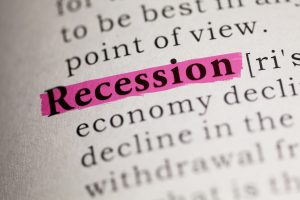What Happens To The Minneapolis Duplex Market During A Recession?
 Whenever both newscasters and your neighbors start uttering the words “possible recession”, it’s easy to panic. After all, the way they say it always seems to be laced with fear.
Whenever both newscasters and your neighbors start uttering the words “possible recession”, it’s easy to panic. After all, the way they say it always seems to be laced with fear.
It often causes us to panic. Perhaps without cause.
A recession starts whenever there have been two consecutive quarters of negative gross domestic product growth. Believe it or not, they don’t tend to last more than a couple of months, and thereafter, economies start to recover.
So what’s the big deal?
Well, the consequences of negative GDP growth are often rising prices and rising unemployment. Higher prices cause people to spend less, and when they do, companies don’t have as much revenue as they once did. So they lay people off. Pretty logical.
Meanwhile, lenders to would-be buyers tighten their requirements to obtain a loan. They also raise mortgage rates. That makes it harder for a duplex or investment property to cash flow. This, combined with unemployment rates, means there a fewer buyers.
It makes sense then that real estate values would drop; usually about 5%. To keep things in perspective, on a $400,000 duplex, that would be a decline in value of $20,000. That’s a lot of money, but nowhere near the tumble we saw between 2008 and 2013.
Economists are forecasting that 2023 will end with roughly 4.8 million home sales, with a slight uptick to 4.9 million next year, which would be the slowest pace since 2011. Note this is homes, not specifically multifamily housing.
But that doesn’t mean properties aren’t selling. Real estate transactions are driven by life events: a death, a divorce, a growing family, or a desire to supplement future retirement savings.
Properties sell in every market. It just may take more than the three days we’ve all gotten used to.

